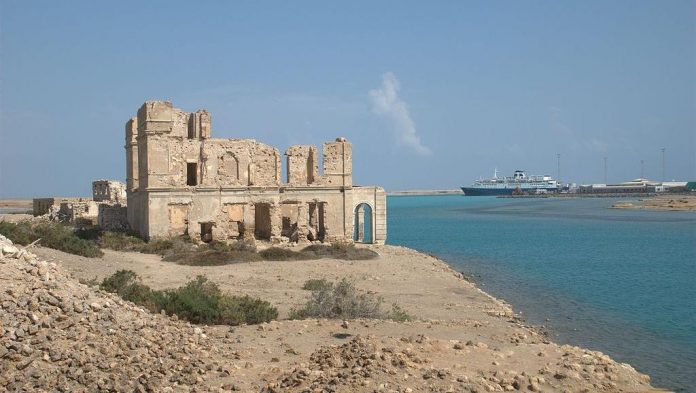The battle to establish new ports on the Red Sea corridor with Gulf money could create better African economies and could define exactly who controls the Red Sea, according to analysts.
Sudanese state media announced that Qatar will finance the redevelopment of the historic Red Sea port of Suakin to the tune of 3.2 billion euros, to be completed and running by 2020.
“There are big challenges around the Red Sea and who’s going to win over the other,” Marc Lavergne, Sudan expert with the Paris-based French National Centre for Scientific Research tells RFI. “Qatar is strangled by Saudi Arabia, and is responding by challenging to Saudi Arabia on the Red Sea, facing Jeddah and Mecca. Qatar is not on the defensive any more, but on the offensive now.”
Lavergne is referring to the boycott carried out against Qatar by Saudi Arabia and the Gulf Cooperation Countries (GCC), with the United Arab Emirates as a staunch Saudi ally.
Involving Sudan in the current GCC-Qatar spat complicates the issues, says Issam Mohamed, a Sudanese economist and dean of the Nile Basin Research Center at Alneelain University in Khartoum. “Sudan is saying it’s neutral and Saudi cannot spend such money. So when Qatar comes with a big investment like this, Sudan has to accept,” says Mohamed.
“But at the same time, you understand that establishing a new trade region will always be competing with Jeddah,” he adds.
The population in the area is expected to grow as well. United Nations estimates that the population of the 20 countries that use the Red Sea as their primary shipping corridor will increase by 110 per cent– to 1.3 billion people in 2050.
The amount of money for the port is seemingly more than for just the refurbishment of an old port, says Mohamed. He believes that an airport or free trade area would be part of the package.
“This money cannot only be to fix the small island of Suakin it needs to be extended to other areas or regions of eastern Sudan,” he says.
Both UAE and Qatar are jostling for position, says Benedict Craven, a Horn of Africa analyst with the Economist Intelligence Unit in London. Craven believes land-locked Ethiopia could be the major customer they are looking for. He says that countries are hoping to tap into Ethiopia’s double-digit growth.
“I would see Suakin serve as a gateway to East Africa, through Ethiopia, which is obviously the biggest economy,” says Craven, adding that Massawa Port in Eritrea is completely closed off to competition due to the strife between the two countries that continues.
Nostalgia
In terms of practicalities, there is a lot to be done, says Sudan expert Lavergne, who has been a number of times to Suakin since the 80s.
Although Khartoum has reportedly denied that Turkey is involved in the process, economist Mohamed says Turkey will contribute to the engineering and infrastructure.
And for Turkey, the port is a nod to the Ottoman Empire, when it used the ancient area for trade and for the pilgrimage to Mecca, right across the Red Sea.
“In Africa, especially on the Sahelian Belt, there is nostalgia surrounding Suakin, especially for everyone who goes on the pilgrimage to Mecca,” says Lavergne, referring to the Senegal-Mauritania-Burkina Faso-Mali-Niger-Sudan route.
Red Sea Corridor
The port of Suakin will have some competition in the Red Sea corridor, namely in Berbera Port, in Somaliland, a project won by UAE company DP World in 2016. Separate deals were signed with the UAE to build a military base in Somaliland along with a new 250-kilometre highway, known as the Berbera Corridor, according to Robleh Mohamud, an analyst and former consultant to the Somaliland presidency.
“The highway will link Ethiopia with Somaliland, and turn Berbera into a major regional trading hub,” says Mohamud, adding that the highway will begin at Berbera Port, through Wachale, an important border town for animal trade.
Somaliland, the self-declared country often confused with its unstable neighbour to the south lacks international recognition– until now.
While some point to the lack of Western involvement in the Red Sea Corridor ports, Mohamud maintains that there is plenty of room for future US or European investment.
“Now that there are many ports undergoing development, there will be a rapid increase of opportunities in the region,” he adds.































